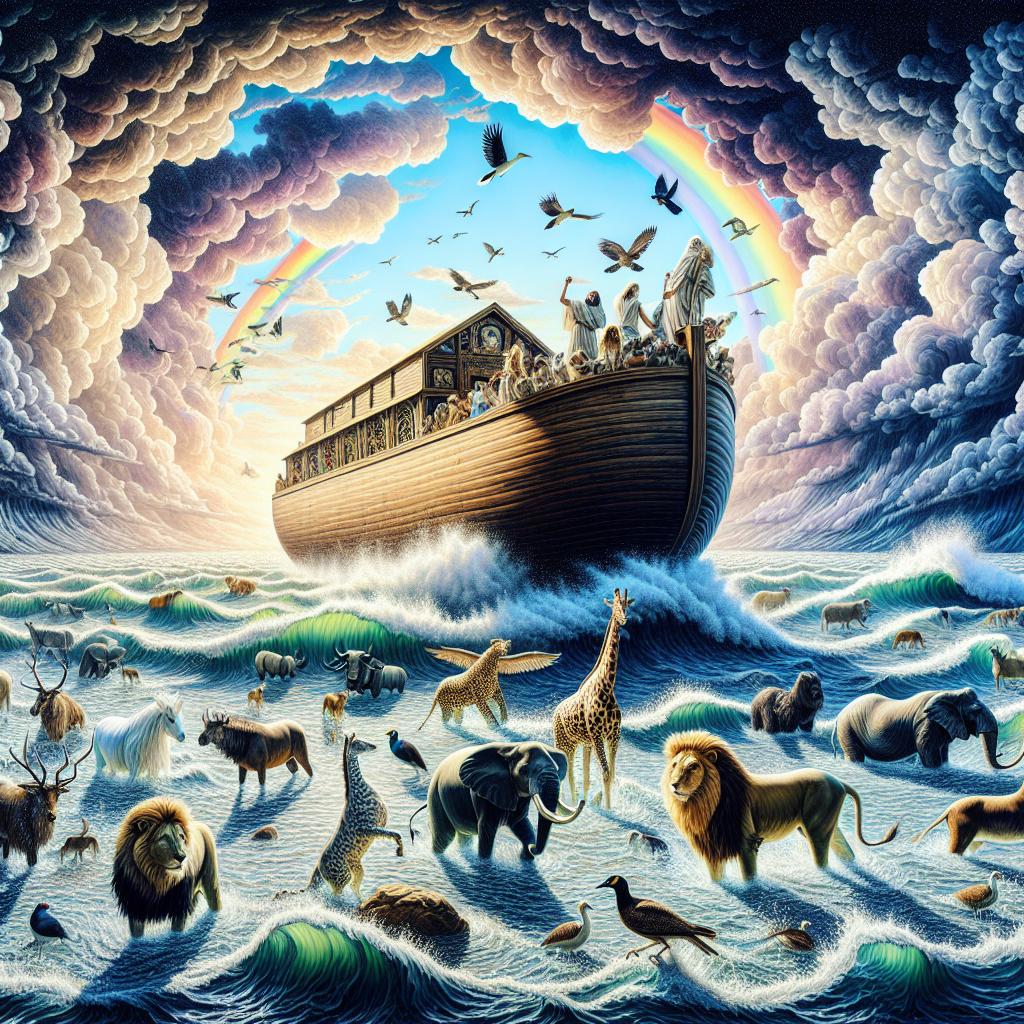
Divine Origins: Exploring 7 Christian World Creation Stories
Published: 07 September 2024
World Creation Stories
People all around the world have their own accounts of creation, and these stories shape the beliefs and values of their societies. There are two main perspectives on creation: those who believe that the universe was created by an intelligent agent (creationists), and those who believe that the universe created itself through natural processes (materialistic evolutionists). These two views are fundamentally opposed to each other.
Creationist stories can be found in various cultures, including the North and South American Indian creation myths, the Australian aboriginal BIAMI Legends, China's creation stories of the Miao people, New Zealand's Maori people, and the Bible's account. These stories often share common elements, such as an original paradise, a fall from grace introducing corruption into the world, and a global flood. The similarities among these accounts suggest a shared history rather than mere chance.
Studies have shown that children naturally perceive the world as designed rather than evolved. This perception is not necessarily due to religious training but is often influenced by the intense indoctrination in state-run school systems where evolution is the only view presented. However, it is important to recognize that empirical science can only test things in the present and cannot prove events from the past.
Atheists, who believe in self-creation or evolution, must explain their existence without an intelligent creator. Evolutionary theories such as Darwinian evolution, neo-Darwinian evolution, punctuated equilibrium, and chaos theory provide atheistic explanations for creation. Western countries universally teach these atheistic creation stories as scientific theory in their public education systems.
The majority of people today believe in a creator God. Some believers in a deity incorporate evolution as "the way that God created" (theistic evolutionists) due to their education in school systems that teach evolution. However, holding contradictory explanations for origins can be problematic, leading many to abandon their theistic beliefs.
Creation stories serve to provide coherent answers to the existential predicaments that all human beings face. The question of origins is significant because it determines the meaning and value we assign to life. Just as the origin of a painting determines its worth, our beliefs about origins shape our behavior and the rules we live by in society.
The teaching of evolution as the dominant creation story in Western education systems has had an impact on our culture. An article from the Proceedings of the National Academy of Sciences argues that the justice system is flawed because it assumes individuals have free will, which is incompatible with a worldview based on chance chemical-physical processes. According to this viewpoint, individuals are not responsible for their actions, and concepts of guilt and responsibility become meaningless.
Consistent atheism, rooted in evolution, undermines moral law in society. Atheistic bioethicist John Harris argues that infanticide is not always unjustifiable and that there is no moral change during the journey down the birth canal. This perspective challenges the existence of any absolute moral line.
Atheistic beliefs, which deny the existence of gods and purposeful forces, reject the idea of an ultimate foundation for ethics, ultimate meaning in life, and free will for humans. This outlook has profound implications for how we understand ourselves and our actions.
It is important to recognize the motives behind choosing a particular creation story. Atheist Aldous Huxley acknowledged that he did not want the world to have meaning because it would imply rules regarding right and wrong. However, his choice to believe or not believe in a creator God raises questions about free will since his decision seems motivated by personal preference.
The atheistic creation story of evolution erodes traditional concepts and undermines belief systems based on God, value, meaning, purpose, culture, morality, and more. This universal acid corrodes every aspect of life.
In contrast to other worldviews, Christianity provides answers to life's ultimate questions. It offers a comprehensive understanding of the past, present, and future, explains the design and beauty in the world, and addresses the problem of evil. Most importantly, Christianity provides the solution to the problem of sin and guilt through Jesus Christ.
Why This Matters
Understanding different creation stories and their implications is crucial for navigating the cultural landscape. The teaching of evolution as the dominant creation story in education systems worldwide has significant consequences for morality, ethics, and the concept of free will. Recognizing these implications helps us engage in meaningful conversations about the foundations of our beliefs and values.
Think About It
- How does your belief about origins shape your understanding of right and wrong?
- What are the implications of denying free will and moral absolutes?
- How does recognizing the motives behind choosing a creation story influence your perspective on competing worldviews?
- How does Christianity provide a comprehensive worldview that addresses life's ultimate questions?
